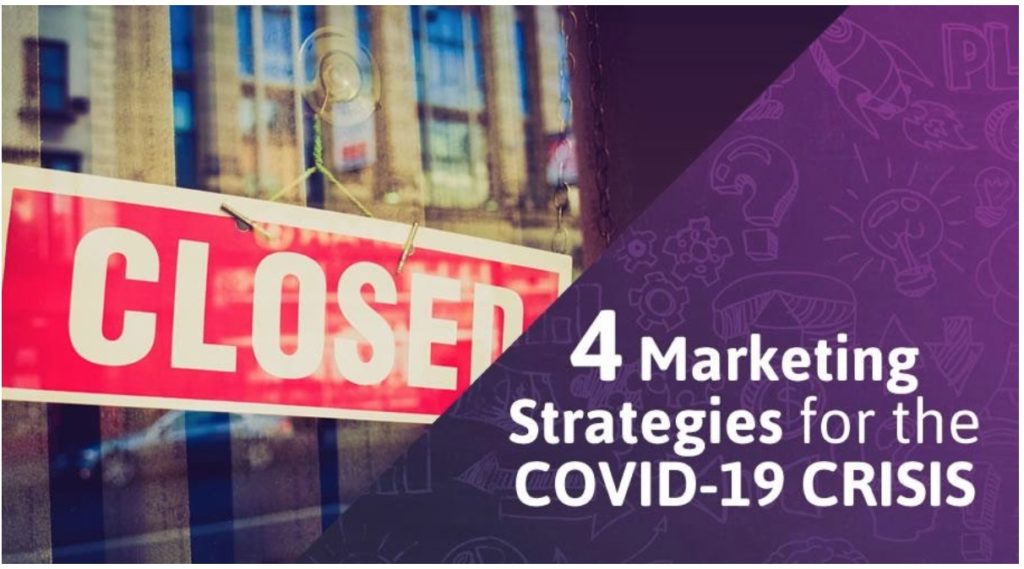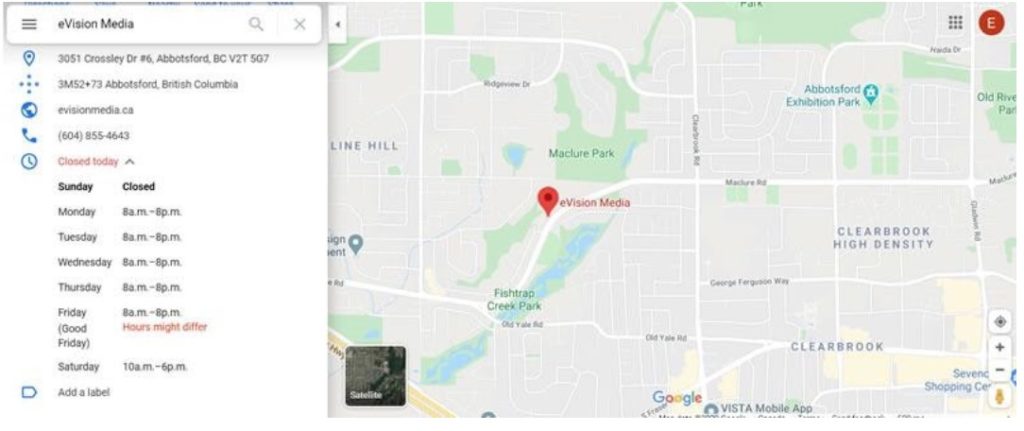Business
4 marketing strategies for the COVID-19 crisis
The COVID-19 pandemic has left many small business owners uncertain as to how to cope in these strange times. Many find themselves planning for new business challenges related to the coronavirus. Entrepreneurs are relying more than ever on digital strategies. If you find yourself having to create a coronavirus crisis management plan for your business, here are a few things to focus on.

How to market during the pandemic
From connecting in our relationships to running our small businesses, COVID-19 has transformed the way we live, work and socialize. I do feel fortunate that my family and I are healthy and safe, and I’m trying to find positive opportunities in all of this.
That’s why I recently shared an article called How to Pivot Your Small Business Strategy During the COVID-19 Crisis, on our website.
I am also hearing from many small business owners who are wondering whether or not to stop marketing during COVID-19. That article showed entrepreneurs how to market during the pandemic, including ways to create a crisis marketing strategy and to:
- Help customers rather than simply selling to them
- Focus on online events and offerings
- Plan for future growth
- Empower employees
As we continue self-isolating to prevent the spread of the novel coronavirus, I wanted to follow up with some other effective ways to keep your business running smoothly and successfully.

Here are 4 marketing strategies to consider:
1. Focus on digital campaigns
With the shutdown or slowdown of most brick-and-mortar businesses, entrepreneurs are relying more than ever on digital strategies. A big part of brand marketing during this pandemic and into the future is going to be shifting most (if not all) of your small business online.
In fact, Larry Kim from Mobile Monkey just wrote, “One new customer closed their brick and mortar locations nationwide and found web traffic is up +150%.”
According to Klaviyo, an email marketing platform that taps into a network of 30,000 businesses for insights, 22% of brands said they’re spending more on ads. And 66% of brands that are spending more on ads are also seeing increased efficiency, with a reduced cost per 1,000 impressions (CPM) and cost per click (CPC).
If you’re wondering how to market during the pandemic, consider using Facebook Ads, Google Ads, Instagram for Business or LinkedIn Ads to direct traffic to:
- Well-researched and useful blogs and videos
- Online products with free shipping
- Virtual services you can offer, whether that’s financial therapy or online music lessons
- Gift cards that can be used now or in the future
That said, don’t be afraid to pause campaigns that aren’t relevant right now, or that you think may turn your customers off.
Part of brand marketing during this pandemic is knowing when to re-strategize and pivot, rather than continuing with an ad campaign that’s not going to resonate with—or even offends—your target audience.
2. Update your Google My Business listing
Your customers and potential customers are counting on you for the latest information about your small business. If you’re closing your company temporarily, whether you’re changing the hours you’re open or offering curbside pickup right now, you need to let people know.
Using Google Posts can be a great way to update people on everything from reduced hours to gift card purchases. Google has some guidance on how to best change your profile.
And don’t worry about SEO implications when you’re editing your profile. For example, marking your business as temporarily closed will not affect your search ranking, and Google will still display you in the search results.
If you don’t immediately see the changes that you make to your Google My Business profile, don’t panic. Google has said they may review updates for quality before publishing.

3. Don’t stop posting on social media
Even if you have to completely shutter your business for the time being, stay active online. In addition to tools like Google My Business, customers look to your Facebook, LinkedIn, Twitter and Instagram channels for the most up-to-date news. It looks really bad to have outdated posts or information languishing on your social media pages.
Some of the updates you could share include:
- Your crisis management strategy, including the steps you’re taking to protect your employees and customers (sanitizing workstations, not letting sick employees work, ensuring employees wear gloves, etc.)
- Changes to hours or business policies (for example, only letting one person into the store at a time)
- If you’re taking online orders and/or offering free shipping
- If you have private shopping or curbside pickup options
- Uplifting quotes or personal messages
One of our clients is offering private shopping appointments and curbside pickup for customers. They are a good example of a small business that’s pivoting during COVID-19 and providing customers with a little TLC.
4. Be careful what you share
There is a lot of misinformation circulating on social media, and it can be dangerous to give your customers the wrong advice (not to mention hugely damaging to your reputation).
Here’s an example of poor marketing strategies for the COVID-19 crisis: A yoga studio in Delta, BC was shut down in March following complaints that the facility wasn’t following social-distancing. Not only that, but they sent out a newsletter claiming that hot yoga can help prevent getting COVID-19.
So map your crisis management strategy out and think before you send out that article to all of your email subscribers or repost something you saw in your Facebook feed. Use trusted sources for coronavirus resources.
Read Finding Your Purpose During Self-Isolation, on our website:
Stuck at home? Now is a good time to figure out your purpose! Our lives are so busy, and we rarely have a moment to just sit in silence and reflect on our life journey and how it has led to where we are now.
For many of us who have chosen to self-isolate, now is a good time to take advantage of the quieter environment to discover if your precious resources are being used to maximum effect.
Whatever your marketing strategies for the COVID-19 crisis are, always look to your brand for guidance. Your brand vision, mission, and values should always be your “North Star” as you stay active online and let your customers know that you’re here for them—now and in the future.
—
(Featured image by Negative Space from Pexels)
DISCLAIMER: This article was written by a third party contributor and does not reflect the opinion of Born2Invest, its management, staff or its associates. Please review our disclaimer for more information.
This article may include forward-looking statements. These forward-looking statements generally are identified by the words “believe,” “project,” “estimate,” “become,” “plan,” “will,” and similar expressions. These forward-looking statements involve known and unknown risks as well as uncertainties, including those discussed in the following cautionary statements and elsewhere in this article and on this site. Although the Company may believe that its expectations are based on reasonable assumptions, the actual results that the Company may achieve may differ materially from any forward-looking statements, which reflect the opinions of the management of the Company only as of the date hereof. Additionally, please make sure to read these important disclosures.

-

 Crowdfunding2 weeks ago
Crowdfunding2 weeks agoSpain’s Real Estate Crowdfunding Boom: Opportunity, Access, and Hidden Risks
-

 Fintech6 days ago
Fintech6 days agoDruo Doubles Processed Volume and Targets Global Expansion by 2026
-

 Impact Investing2 weeks ago
Impact Investing2 weeks agoIntesa Sanpaolo’s 2026–2029 Growth and ESG Strategy
-

 Business4 days ago
Business4 days agoTopRanked.io Weekly Affiliate Digest: What’s Hot in Affiliate Marketing [Health Trader Affiliate Program Review]
























